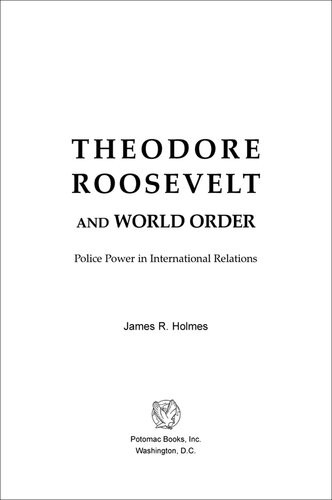

Most ebook files are in PDF format, so you can easily read them using various software such as Foxit Reader or directly on the Google Chrome browser.
Some ebook files are released by publishers in other formats such as .awz, .mobi, .epub, .fb2, etc. You may need to install specific software to read these formats on mobile/PC, such as Calibre.
Please read the tutorial at this link: https://ebookbell.com/faq
We offer FREE conversion to the popular formats you request; however, this may take some time. Therefore, right after payment, please email us, and we will try to provide the service as quickly as possible.
For some exceptional file formats or broken links (if any), please refrain from opening any disputes. Instead, email us first, and we will try to assist within a maximum of 6 hours.
EbookBell Team

4.0
6 reviewsTheodore Roosevelt and World Order presents a new understanding of TR's political philosophy while shedding light on some of today's most vexing foreign policy dilemmas. Most know that Roosevelt served as New York police commissioner during the 1890s, warring on crime while sponsoring reforms that reflected his good-government convictions. Later Roosevelt became an accomplished diplomat. Yet it has escaped attention that TR's perspectives on domestic and foreign affairs fused under the legal concept of "police power."
This gap in our understanding of Roosevelt's career deserves to be filled. Why? TR is strikingly relevant to our own age. His era shares many features with that of the twenty-first century, notably growing economic interdependence, failed states unable or unwilling to discharge their sovereign responsibilities, and terrorism from an international anarchist movement that felled Roosevelt's predecessor, William McKinley. Roosevelt exercised his concept of police power to manage the newly acquired Philippines and Cuba, to promote Panama's independence from Colombia, and to defuse international crises in Venezuela and Morocco. Since the end of the Cold War, and especially in the post–9/11 era, American statesmen and academics have been grappling with the problem of how to buoy up World order. While not all of Roosevelt's philosophy is applicable to today's World, this book provides useful historical examples of international intervention and a powerful analytical tool for understanding how a great power should respond to World events.